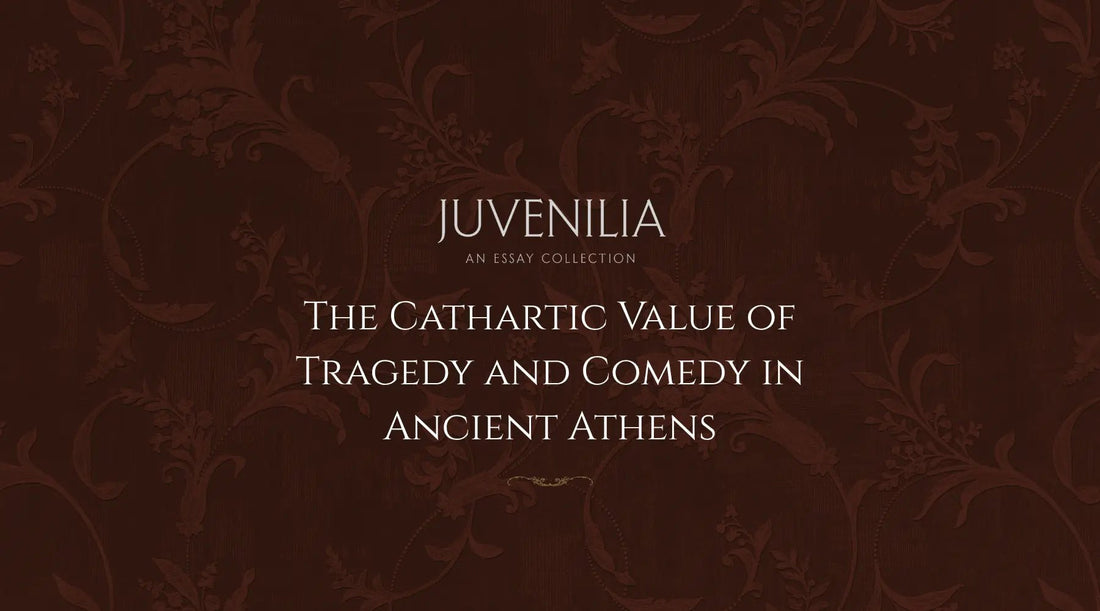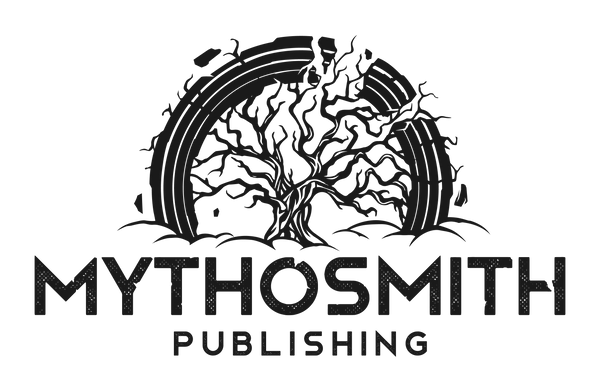
The Cathartic Value of Tragedy and Comedy in Ancient Athens
Comedy and Tragedy played an integral role in Athenian society. Both comedy and tragedy served as a cathartic outlet for emotion and healing with tragedy allowing for mourning and comedy allowing for laughter and positivity. Athenian theatre was the first of its kind; live performances of poetic metre allowed for subversive themes and ideas to be commented on through literature. Both forms of verse discussed issues concerning politics, religion, and gender, all topics of great importance and interest to the Greeks as they aided in the understanding of the human condition or human nature. An important figure in the realm of theatre is Dionysus, the God of Theatre (Greek Drama IA, 5). He is relevant as a character, but also as the reason for these plays to be written in the first place. There was a festival in Dionysus's name that made even writing plays a competition and there is a theatre called Theatre of Dionysus where performances could have been held.
The characteristics of tragedy from Antiquity are a little different than contemporary tragedies in the sense that modern tragedies seem to miss certain key points and themes (Greek Drama IA, 7). There is an applicable standard formula to Greek Tragedies that follows a young noble who tries to do the right thing in their position, but unfortunately gets it wrong (Greek Drama IA, 18).
These stories are not about average people, but people selected by fate or by the gods for a purpose. Tragedies are often set with a mythological backdrop with heavy religious connotations, though Aeschylus's Persians is an exception as it was a tragedy specifically to do with the real event of the Persian War and was therefore specifically relevant. In any case, the stories are usually set with familiar figures including Agamemnon from Euripides's Oresteia which follows Agamemnon's journey following the Trojan war. The purpose of choosing characters from mythology allowed for deeper concepts to be explored as commentary could be offered on stories that everyone already knew, particularly depicted in the Chorus (Greek Drama IA, 17). Such themes include fate versus free will, reason versus emotion, new versus old, and revenge versus justice, all of which is presented in a digestible form and acted out in front of an audience using only male actors; Lysistrata would have been a sight to behold, though I suppose that could only add to the comedy of that particular play.
Politically speaking, the play I believe is most relevant is Antigone (Greek Drama IB, 8). We see two characters who are both objectively correct and yet they are at odds. We have Antigone, daughter of Oedipus ideologically against her uncle and the King, Creon. Antigone has two brothers, one who fights with the crown and one who fights against. Both brothers perish, and Creon decrees (as is his right as he is essentially an absolute monarch who believes in divine right) that those who betrayed the crown should not get the privilege to be properly buried. Antigone, if she followed those orders, would be directly violating her own role in society as it was the women who were in charge of taking care of the dead, but not only this, she would be directly shunning funeral rites and what could be boiled down to as betraying the Gods. This puts both characters in a tough spot. It begs the question of who has more rights, the Gods, or the Kings? Creon needs to appear as a strong King, and if a woman and family member can blatantly disregard his decree then everyone could, which would destabilize everything. In opposition, however, this is not a call Creon should have made in the first place as perhaps death was enough of a payment for treachery, and to halt the cultural ritual of dealing with the dead is to elevate beyond the realm of Kingship. Creon is directly causing a conflict of interest as he is now competing with the cultural belief set before them by the Gods.
I think this is what makes tragedies, well, tragic. It's the, "What if," questions and the "If only," statements that illustrates human nature beautifully. Quite honestly, hindsight in itself is tragedy because it is only after obtaining knowledge that one realizes that they made all the wrong mistakes to obtain the knowledge they would have otherwise not needed had they not been curious. What makes this play so interesting is the idea of fate and that the gods are not distinctly human and therefore cannot be judged at the same standard we judge ourselves.
There are many religions in the world, but the Greek pantheon was chaotic to say the least. Humans are the playthings of the Gods. This is evident in Oedipus the King as Apollo tells Oedipus his fate through prophecy. This idea is something the Greeks would have likely agonized over. Is what they do their own free will or is it predestination? A brief summary of Oedipus the King: Oedipus is told he will marry his mother and kill his father. He leaves his hometown, goes on the road, completes a quest, and becomes King by defeating a sphinx. Through his own actions in attempting to avoid his fate, he guarantees it as he killed his father on the road, and in defeating the Sphinx and becoming King, marries his mother who was the Queen. It is easy to imagine the Gods up in Olympus laughing at Oedipus's misery and misfortune all while lounging around with feast and drink. This is what likely made the Greeks tough and care about honour, glory, and aretē. These are not benevolent Gods, and this is important as it shaped everything in early Greek culture until the conquest of Philip and Alexander as Lord Byron unfortunately finds out.
The purpose of tragedy in the Ancient Greek world was to allow for a cathartic experience separate from themselves, involving mythological or historical figures everyone was familiar with. Through the retelling of these stories, it could allow for a healing of sorts, likely because it was not about ordinary people, but great heroes and warriors. War was quite constant in Antiquity, and it is as likely that people were as scarred by it then as they are now. Those who suffer from PTSD can use tragedies to cope with the reality of their situations (Greek Drama IB, 15). On the flipside, the other performance art the Greeks are known for are their comedies which allowed for the healing properties of laughter. It is both comforting and encouraging, yet disappointing that the sense of humour of humans has changed very little in the past 2500 years.
Comedy is a different ballpark. Comedy, unlike Tragedy, is no longer concerned with heroics or the gods. It is no longer concerned with deep moral questions. There are three genres of Greek comedy, inventively named Old, Middle, and New (Greek Drama IIA, 3). We have little in the way of middle comedy, but what we have of Old is mostly Aristophanes. Old is very topical in nature and involves crude humour, wit, sexual innuendo, and the broadcasting of political blunders made by peers with references to specific names all throughout the texts (Greek Drama IIA, 12). Old comedy is indicative of freedom of speech because the authors survived after releasing the content. New comedy is the complete opposite and it is the first account of slapstick humour or stereotypical humour (Greek Drama IIB, 15). If an author after Macedonia insulted superiors there would be trouble rendering Old comedy irrelevant for a long period.
Lysistrata by Aristophanes directly discusses the role of women and war, as the play takes place during the Peloponnesian war both in the play and in real life (Greek Drama IIB, 11). In a nutshell, the women of Greece go on a sex strike to force the husbands to cease the Greek civil war. It works. There is an obvious anti-war message, and this was likely significant in itself as it was written roughly halfway through the ordeal. With this being said, there is a significant difficulty in interpreting texts from so long ago as there is a tendency to interpret words in a way that would not have been relevant back then. As an example, one could make a modern case that Lysistrata is pro-feminist and anti-war. However, there is a distinct possibility that it is a comedy specifically because these sentiments are funny to them, as though the thought of war being bad is as laughable as women being empowered. If even these themes are in contention, the thought of women being able to go on a sex strike, as women are seen historically as sexually insatiable and as shifty as the moon, would be the height of comedy. The thought of women being able to do anything beyond their own dictated role would be hilarious to them, let alone them thinking women could actually do a better job ruling the masses, even if in contemporary views we do understand that women are as capable. Therefore, it is very difficult to say what Aristophanes thought, or if his writing is even indicative of his own beliefs. Therefore, the gender portrayals need to be taken with a grain of salt. There are some things that can be taken away as fact. Lysistrata was a comedy. Women were severely oppressed in Athens because of citizenship being the prime concern of the city. Women in the play are put forth in a very progressive manner that almost rivals even today's standard of women. Even if one reads it as though Aristophanes is a feminist, the men watching the play likely were not and would have interpreted it any way they saw fit, so really it is an eye-of-the-beholder type of scenario here. The play is remarkably funny if one looks at it as though Lysistrata is an empowered woman proving the incompetency of the ruling men around her, but I think it is, yet again, more evidence of the true scale of oppression and mockery women were subjugated to.
In conclusion, tragedy and comedy play as important a role in today's society as it did in ancient Greece. I do not think it is a coincidence that the movie industry is as large as it is. Even if it is not specifically Comedy or Tragedy in theatres today, it is still entertainment that moves us through stories of hardship, coming of age, experiencing fear in horror, or excitement through fantasy, adventure, or action. Entertainment is so ingrained in society now that true content with a deeper meaning has never before been more important as there is a disgusting amount of superficial knowledge available, yet little of substance. Tragedy and Comedy was a way of coping with reality in Ancient Greece and connecting with it in a meaningful way.
[WORKS CITED]
Sears, Matthew. "Greek Drama IA." The Ancient Greeks: Gods, Heroes, Politicians and Poets. UNB, Fredericton. 3 Feb. 2020. Lecture.
Sears, Matthew. "Greek Drama IB." The Ancient Greeks: Gods, Heroes, Politicians and Poets. UNB, Fredericton. 7 Feb. 2020. Lecture.
Sears, Matthew. "Greek Drama IIA." The Ancient Greeks: Gods, Heroes, Politicians and Poets. UNB, Fredericton. 10 Feb. 2020. Lecture.
Sears, Matthew. "Greek Drama IIB." The Ancient Greeks: Gods, Heroes, Politicians and Poets. UNB, Fredericton. 14 Feb. 2020. Lecture.
